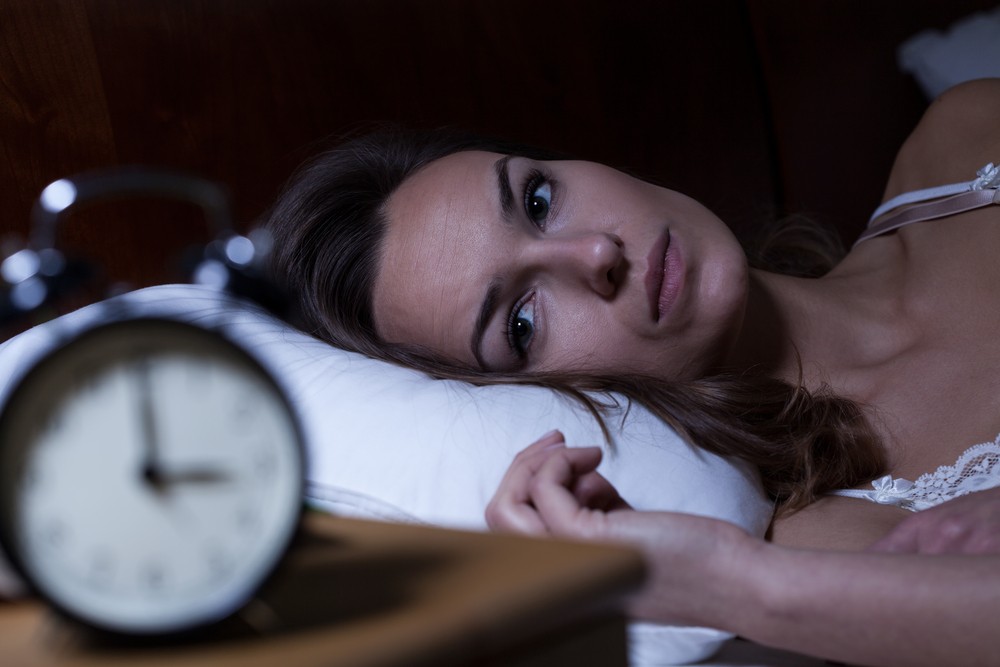
Sleep is essential. It is the time when our bodies replenish, repairing the mentaland physical wear-and-tear we suffer during the day. However, our “always-on” culture has created a sleep-deprivedgeneration. Cell phones, computers, PDAs and 24-hour cable television keep our brains stimulated. The result is fatigue, poor health and, surprisingly,weight gain.
According to a study conducted by Kaiser Permanete and Harvard Medical School/Harvard Pilgrim Health Care, it was found that moms who got less than five hours of sleep a day when their babies were 6 months old were three times more likely to be carrying 11 extra pounds at the child’s first birthday than those who get seven hours. The bottom line –- those extra two hours of sleep could make all the difference.
Other studies have shown that persistent sleep deprivation causes hormonalchanges that may stimulate appetite.
Sleep, Hormones and Weight Gain

Leptin and Grehlin are hormones that help the body control appetite andweight gain and loss. Leptin suppresses appetite, while Grehlin increases appetite and may prevent a person from losing weight.
When lack of sleep becomes a chronic problem, levels of Grehlin increases, causing greater appetite, and levels of Leptin decrease. Regardless of diet and exercise, it’s possible that some obesity is caused, or made worse, by sleep deprivation.
Research subjects who slept only four hours a night for two nights had an 18 percent decrease in leptin, a hormone that tells the brain there is no need for more food, and a 28 percent increase in ghrelin, a hormone that triggers hunger.
The Stages of Sleep
In order to understand the link between sleep deprivation and weight gain it is important to know how much quality sleep we need. Experts believe that adults require seven to eight hours of sleep every night. Studies have shown that decreased amounts of REM sleep can lead to an increased food intake. The two phases of sleep are referred to as non-REM sleep and REM sleep. The “REM” in both phases stands for “Rapid Eye Movement.”
- Non-REM: Non-REM sleep is divided into four phases:
- Phase 1: During this phase, a person is in between wake and sleep. The person can be awakened easily.
- Phase 2: This is a period of light sleep during which body temperature drops.
- Phase 3 and Phase 4: These are the phases during which a person experiences an increasingly deeper stage of sleep called delta sleep. During this restorative stage, the body is repairing itself, buildingbone and muscle and releasing certain hormones.
- REM: REM is the phase during which a person dreams. It’s a period of greater brain activity but less muscle activity.
Sleep Tips for New Moms

- Don’t check what time it is
This may sound like a weird tip, but to me it is quite important. Some new moms get into the habit of checking the clock all night – calculating how long it’s been since the last feeding and how long they’re likely to have till the next. The consensus appears to be that this both disrupts sleep and increases the feeling of exhaustion.
So don’t focus too much on how much you are awake. Just do what you have to do as fast and easy as you can and head back to bed. - Go to bed when your child does
This one isn’t much fun. The free time with your spouse (and yourself!) is eliminated. But if you’ are an exhausted new mom – honestly – how much fun are you to be with? - So if you’re really tired, go to bed early at least one night a week or so. Do this even if you don’t want to or can hand over the first nighttime feeding to dad.

- Get off your feet, relax on the couch, and stay off the phone. Don’t stress if you can’t fall asleep. Just lying down for a half hour can be very restorative.
- Enlist help for nighttime feedings.
One of the best ways to get a solid stretch of sleep is to have your husband or visitor work the night shift for you.
It’s easier to turn feedings over to someone else if you’re bottle-feeding, but moms who are breastfeeding can introduce a bottle of breast milk early on so that someone else can provide relief in the middle of the night. An extra bottle of pumped breast milk can be liquid gold, equal to an extra two or three hours of sleep. - Find snooze-inducing activities.
For those moms who have trouble falling asleep even after a draining day of caring for a new baby, it might be tempting to decompress in front of a computer or television. But that may be counterproductive.
The light from the computer or television can be very stimulating and keep you up. The radio can be a perfect sleep aid. - Opt for a massage Relaxation techniques, such as massage therapy, can reduce the frustrations, stresses, and other turmoil that lead to a night of tossing and turning-and anxiousness and poor performance during the daytime. It seems we all have the need for human touch. Therapeutic massage can have both an internal psychological benefit and an external physical benefit-improving physiological responses for the body. Massage can also help a couple reconnect. It can be a great way to re-acquaint with your partner. You might want to give each other a nightly massage before sleep.

- Don’t rely on coffee.
Although gulping down a cup of coffee first thing in the morning can give you the jolt you need to be alert, but overdoing it can mask your need for sleep, and may actually prevent you from falling asleep when you finally lie down. - Keep your bedroom restful
Is your room, home to every unwashed bodysuit, un-repaired toy, and un-put-away holiday decoration? Lying in bed surrounded by reminders of chores can make you too tense to drift off. So if you can’t move the stuff somewhere else, try covering it or hiding it with a screen. Then turn off all the lights and lower your thermostat: Experts believe darkness helps set your internal clock to sleepy time, while coolness mimics the way your internal temperature drops during the night. - Realize that the sleepless nights won’t go on forever.
According to the American Academy of Pediatrics (AAP), healthy babies usually settle into a routine in which they sleep for longer stretches at night (five or more hours) by 2 to 3 months of age. Almost all babies should be able to sleep through the night by the age of 6 months, but the AAP acknowledges that there can be a significant discrepancy between this statistic and what happens in any given family on a given night.

- Get some fresh air and exercise A workout can help you sleep better — if you do it at the right time. Exercising close to bedtime may make it difficult to fall asleep, whereas exercising in the late afternoon may be sleep promoting. Mornings are also a good bet; early sunlight can reset your inner clock, helping you get to sleep at night. One mom who needs no convincing about the power of exercise is Zeis, the onetime shower snoozer. For the past year, she’s made a habit of running while a sitter watches her daughter. She sleeps more easily and soundly now at night — and aims to keep working out after her next baby comes along. “Then, with luck, I’ll do all my napping in bed.”
- Understand the battle. Babies have shorter REM cycles than adults, so they are rested after shorter amounts of time. “Sleep when the baby sleeps” is advice that will leave you permanently tired. The statistics are pretty clear that sleep deprivation slows your thinking and reaction time. So, a bit more sleep should make it faster to get chores done and leave you clearer headed to deal with baby needs and emergencies. Isn’t that enough motivation to ask others for help and to sleep without guilt?
Other things moms find relaxing: warm baths; soft music; cuddling with pets; decaf tea or milky cocoa; stretches; and yes, even sex.
Related Links
- Sleeping During Pregnancy
- Dealing with Sleeplessness
- Food craving: understanding body signals
- 100 point strategy to halt weight gain
- Infant Feeding Problems
- Massage Therapy
- Full-body workout: BODY, MIND AND SOUL
- Overcoming Breastfeeding Myths
- In Touch With Your Baby
- Attending to Your Baby’s Needs
- After the Baby Arrives